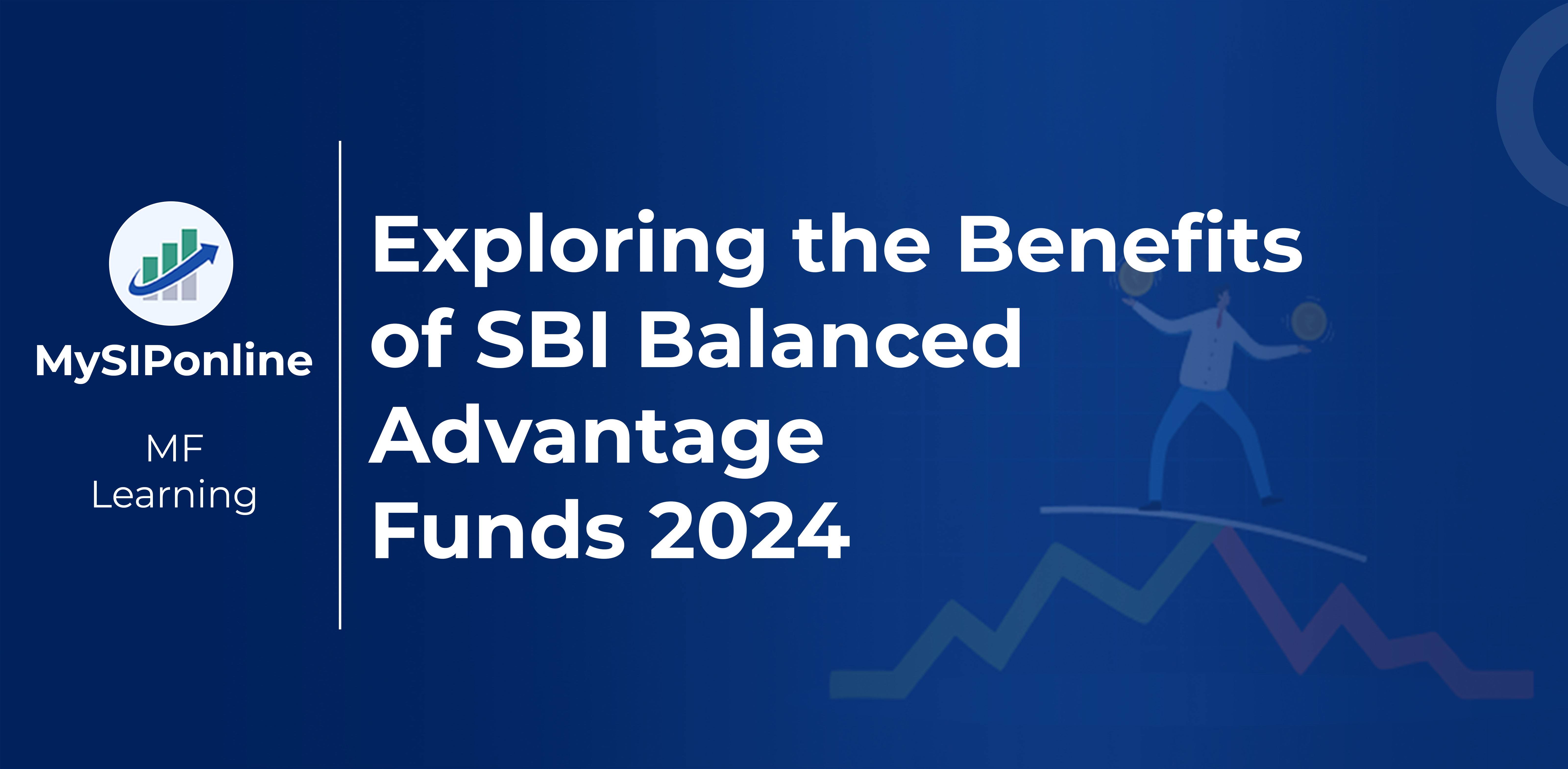If we are talking about life or investing both need a balanced strategy, nowadays investing has gained more popularity every single person wants to grow their money through investing, but without taking any risk.
To balance risk there are several mutual fund schemes and one of them is the SBI Balanced Advantage Fund.
Let’s see how this fund gives you the reason for investing in a mutual fund.
In this article we will delve into SBI mutual fund benefits, what are balanced advantage fund, and who should invest in this fund. Factors that you should consider before investing. Read and lead mutual fund investing.
What are Balanced Advantage Funds?
Balanced Advantage Funds, also known as Dynamic Asset Allocation Funds, are a type of mutual funds that change how much money they invest in stocks and bonds based on how the market is doing.
The main goal of these funds is to give investors a mix of both equity and debt, adjusting the mix to make the most money while also keeping risks in check.
Thus, these funds give you a variety of options for earning money from stocks and bonds, thereby offering a sort of financial balance.
Like a financial seesaw that adjusts to keep you in a comfortable position, the fund managers actively make these changes to assist you in earning the highest returns while keeping things steady.
The benefit of the SBI Balanced Fund?
- Dynamic Asset Allocation is a feature that the SBI mutual fund provides. This implies that the fund is able to modify its equity and debt investment mix in response to changes in the market.
Because of its adaptability, it may take a defensive position during market downturns and grab chances during upswings. - Effective risk management is the fund’s goal. It does this by closely observing market developments and modifying its allocation as necessary.
The fund can lower exposure to stocks during times of market volatility, possibly protecting investors from severe losses. - The fund aims to deliver capital appreciation over an extended time by enabling participation in stock markets under advantageous conditions.
With a balanced and risk-managed approach, investors may enjoy the benefits of possible stock market gains. - During periods of volatile markets, The SBI Balanced Advantage mutual fund shifts its portfolio to safer assets like bonds to shield investors from market losses.
In volatile markets, this downside protection technique aids in capital preservation. - Investors with a range of risk tolerance can invest in the fund. The fund may conform to varying risk preferences, regardless of the investor’s inclination towards conservation, moderation, or aggression, according to the dynamic asset allocation technique.
- A committed research staff and a group of seasoned fund managers oversee the SBI Balanced Advantage Mutual Fund.
The fund’s success is improved by its proficiency in assessing market circumstances and choosing assets on time. - Since capital gains tax is imposed under the fund’s debt and equity allocation, investors may profit from possible tax efficiency.
The active management of the fund may maximize investors’ tax benefits. - The fund invests in a range of debt and equity securities to offer diversification benefits.
By distributing risk across several asset classes, diversification promotes portfolio stability and balance.
Who should invest in SBI Balanced Advantage?
Why the SBI Balanced Fund is appropriate is-
- Conservative Investors: Seeking capital preservation with a balanced mix of equity and debt.
- Moderate Risk Takers: Looking for balanced growth and risk management.
- Diversification Seekers: Wanting to spread risk across equities and debt instruments.
- Long-Term Investors: Prioritizing steady growth over time.
- Tax-Efficient Investors: Seeking potential tax benefits through active fund management.
- Those Preferring Professional Management: Entrusting investments to experienced fund managers.
- Goal-Oriented Investors: Aligning with specific financial objectives.
- Varied Risk Profiles: Catering to conservative, moderate, and aggressive investors.
Do factors consider before investing?
To make sure that your investment is in line with your overall investing plan, risk tolerance, and financial goals.
It is important to take into account several aspects before making any selections. Before you invest, take into account these important factors:
Financial Goals
Clearly state what your financial goals are, like paying for school, buying a house, or setting up money for retirement.
Your time range and investing plan will be determined by your Goals.
Tolerance for Risk
Evaluate your degree of comfort with risk. The risk associated with various investments varies.
However, it is important that your risk tolerance and the possible volatility of the assets you have selected match.
Investment Time Horizon
Choose the amount of time you want to invest before you need to withdraw money. Your time horizon affects the kinds of investments that could be appropriate and aids in determining the right amount of risk.
Diversification
To lower risk, diversify your assets by holding a mix of different asset types, such as stocks, bonds, real estate, etc. Your portfolio may be shielded from the underwhelming performance of a single investment by using diversification.
Market Situation
Take into account the state of the economy and the market.
Making educated investing selections may be aided by knowing which market circumstances specific assets perform better under.
Needs for Liquidity
Determine how simple it would be for you to obtain your money.
Make sure your investment decisions are in line with your liquidity requirements because certain investments may have limitations on when and how you may withdraw money.
Expenses and Fees
Recognize the costs related to your investments. Over time, high costs may reduce returns.
Recognize transaction fees, expense ratios, and other costs associated with investing management.
Tax Implications
Think about how your investments may affect your taxes.
Taxation may vary depending on the type of income, such as dividends, interest, and capital gains. Make the most of your investing plan to reduce your tax burden.
Financial Knowledge
Put your money into well-understood assets and markets. Ignorance can result in bad financial choices.
Remain informed and educated about the investments you are thinking about making.
Market research
Look at certain assets or investment vehicles in-depth. Recognize the track record, management group, and general standing of the investment possibilities you are thinking about.
Inflation
Key economic data, interest rates, inflation, and other variables that may affect the investing markets should all be kept up to date.
Different asset classes’ performances might be impacted by economic developments.
Regular Review
Review and monitor your investment portfolio regularly.
It is crucial to make sure that your investments continue to align with your objectives.
Because both personal circumstances and financial markets are subject to change.
Conclusion
In conclusion, investors looking for the best returns and risk management may consider the SBI Balanced Advantage Fund since it is a dynamic and well-balanced option. It is a flexible mutual fund choice because of its dedication to long-term wealth building, expert management, and flexibility. Investors should evaluate their risk tolerance and goals before making a purchase. Furthermore, taking into account the ease of use of Systematic Investment Plan can offer a methodical and disciplined way to increase wealth over time. In the realm of investing, a well-considered and equitable approach is crucial for achieving financial success.



